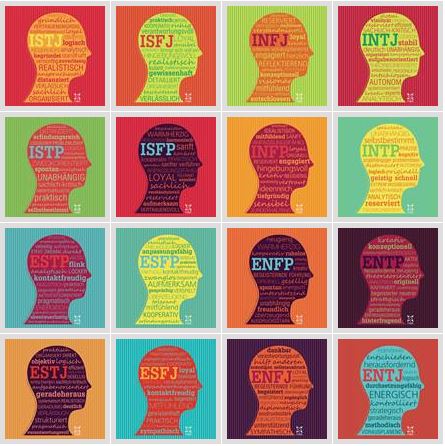The MBTI (Myers-Briggs Type Indicator) is based on the typology of Carl Gustav Jung. Katherine Cook Briggs and her daughter Isabel Myers took it up and carried out series of measurements. The Second World War had a great influence on the development of the project. Myers believed that if people understood each other better, they would work together better and there would be fewer conflicts. The post-war world could be a better place. She was determined to find a way to give people access to their psychological type. This led to the idea of a type indicator, and Myers devoted the rest of her life to developing this indicator. She spent the next 20 years developing questions and validating the instrument and theory. The MBTI instrument was first published in 1962.

Fields of application
By determining the personality type, the MBTI creates a stable foundation for lifelong personal development. It offers a constructive, flexible and liberating framework for understanding individual differences and strengths. The MBTI profile shows how we see and interact with the world and provides information about our motivation and the motivation of others. This ensures a strong foundation for personal growth and development, which in turn underpins improved personal effectiveness. Starting with an understanding of the MBTI type, the MBTI framework supports a far-reaching and lifelong development journey that addresses many common challenges in the workplace and beyond.

Personality Types
MBTI Step I examines personality type based on four basic dimensions of individual differences to create 16 personality type profiles:
- Extraversion (E) - Introversion (I)
- Where you prefer to draw your energy from or where you direct it
- Sensation (S) - iNtuition (N)
- The type of information you prefer to collect or trust
- Thinking (T) - Feeling (F)
- The way you prefer to make decisions
- Judging (J) - Perceiving (P)
- How you prefer to organize yourself in the outside world
The insights gained form a framework for dealing with a wide variety of problems that can be applied in both professional and private life, sending users on a lifelong development journey that leads them to greater self-knowledge the more often the framework is applied.
